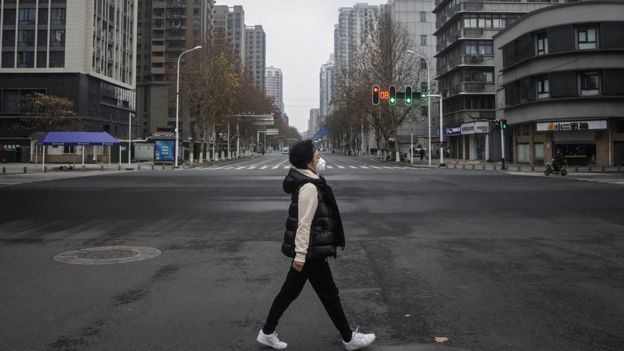01 April, 2020

The Governor of New York stated that Covid-19 is spreading in New York faster than “a bullet train”. Not only in New York, it is evident that the number of Coronavirus cases continues to increase exponentially in multiple countries around the globe. The outbreak has already been labelled as pandemic by the World Health Organization (WHO).
The Coronavirus which was first tracked in Wuhan city of China continues to mount, with more than 683,667 infected cases globally. The number of people confirmed to die due to this virus is more 32, 146 as of 29 March. 199 countries and territories including two international conveyances: the Diamond Princess cruise ship harbored in Yokohama, Japan, and the Holland America's MS Zaandam cruise ship have been affected by the virus so far. The United States tops with most confirmed cases of 123,828 people and Italy with most confirmed deaths over 10,000 people (as of 29 March 2020). Without the vaccine it is more likely that the situation would get worse in the coming days.
Just as this pandemic has devastated lives and shattered the markets, it is certain that this will have a massive impact on the global economy. It will permanently reshape the global economic relation and it might result in the shift of world order.
Impact on Global Economy
As to contain the spread of virus the governments around the world have turned into public health measures such as social distancing, travel bans, and to the dismay of people lockdowns. Yet, taking such steps needs a significant economic cost. The global business relation has taken a massive blow by disruption on the flow of goods and people. It is visible that financial contagion is escalating parallel to the disease itself. Along with the thousands of lives of people which are at risk, economic costs are much higher which is proving to be unpredictable.
Airline, travel and tourism industry has already been shattered with travel bans and border controls. The disruption in the business could cost the global airline industry up to $
Furthermore, the stock markets also took an immense hit by the epidemic. The stock market crash began on March 9, and on March 12 Dow Jones Industrial Average (DJIA) saw a record plunge of 9.99% which was the sixth worst percent drop in history. The collapse in the stock market occurred simply because the investors are worried about the impact of the Covid-19 pandemic. Crash in the stock market often causes recession and combined with a pandemic could result in a worse situation.
Post pandemic the world order
Nedret Ersanel, a Turkish journalist states that “Epidemic produces political results”. It seems highly unlikely that the world political and economic order will return back to what we have been perceiving. The pandemic has moved towards the west evidently hitting hard Italy, Iran, France and now the United States. The Asian countries South Korea, Singapore have responded to the outbreak comparatively better than the western countries. With China getting under control of Covid-19, it is lending a hand to contain the virus in needy countries like Pakistan, Italy, and Spain.
The European epicenter of Coronavirus, Italy pleaded with the country's allies and friends for emergency medical supplies but none of the European Union (EU) members responded. Then China comes into the play with a medical team and 31 tonnes of supplies including ventilators. Italy feels that it has been abandoned by its European friends and the Chinese gesture has reinforced the perceived lack of support from its closest allies. After Chinese, Russians and Cuban support came to Italy while EU member states and other allies turned their back when they were needed most.
Now Italy becomes the first member of Group of Seven industrialized nation to join China’s Belt and Road Initiative (BRI) as it signs a $2.8 billion deal with China on 23 March during President Xi Jinpin’s visit to Rome. However, it's wrong to say Italy’s decision to join BRI simply depends on the Chinese support during the crisis but it is much more based on practical economics.
Without incentives, it is more likely that global economic integration like the EU which was established in the 20th century is to lose its significance. However, it is wrong to predict that the EU will fall eventually due to this pandemic. The Covid-19 will certainly teach lessons to the political leaders on how to sustain international cooperation.
In this world crisis China is showing its strong leadership offering help to several countries while the US and other western powers are struggling to fight the virus domestically. As Joseph Nye states “even if the United States prevails as a great power, it cannot protect its security by acting alone”. It is high time for western democracies to come out of their shell and find a new way of multilateral cooperation.
Other Research Articles
Study on the Gaps of the Capacity of Nepalese Logistics Service Provider
April 07, 2024
Migration and Nepal’s Economy: The Paradox of Development
August 13, 2023
Presence of China and India in Africa: What it Entails?
May 25, 2021
Coronavirus and its Impact on World Trade
July 28, 2020